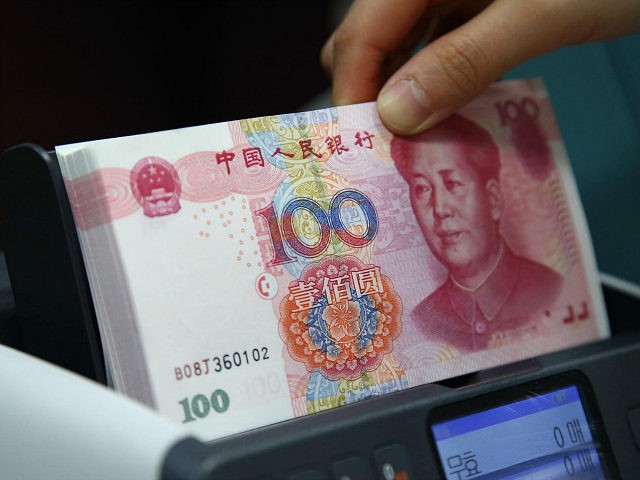Analysts with the proper degree of skepticism about China’s boasts of soaring economic power note that official reports from the Communist regime cannot be trusted. Another, less widely understood problem is that China’s rulers might not know how unstable their economy really is because a sizable portion of Chinese debt lurks off the books in the “shadow banking” industry.
Reuters took a deep dive into shadow banking on Thursday, beginning with the story of a family hoodwinked out of its combined fortune by a high-yield “safe investment” that turned out to be a dodgy investment fund. In essence, China’s central government decided to limit the amount of debt fueling its economy, but people wanted to borrow more, so a huge amount of “shadow loans” were made with dubious business plans.
Many of these plans are far too complex to be fully understood by the people buying into them. Their complexity is one of the reasons they can evade regulators, but it also means these shadow loans and investment plans have a lot of moving parts, and if any element of the financial plan fails, the whole thing blows up. The borrowers and investors don’t usually realize that; Reuters notes that Chinese investors tend to believe wealth management plans come with implied guarantees, and some of them were flatly lied to, as with the family profiled in the story.
The Financial Times describes shadow plans as “products that promise to combine the high returns of a mutual fund with the safety of a bank deposit.”
Another interesting side effect of the shadow system is that it short-circuits the central government’s economic monitoring tools. Banks using these techniques often report loans as investments, which conceals just how badly undercapitalized they are.
The volume of shadow banking defaults has not been too bad so far, but there are fears a cascade of failures might be looming around the corner, and no one really knows how bad it will be. Reuters estimates the size of the shadow banking industry as $9.8 trillion. The current Gross Domestic Product of China is only about $11.2 trillion.
As of last year, well over half of the bank loans made in China were “shadow” products. One Chinese bank manager compared the appetite for shadow loans to a teenager scarfing down fatty foods to make himself grow faster. Shadow banks basically have to keep making new loans to amass the capital they need to fund their existing commitments. It sounds like a Ponzi scheme or the fiscal equivalent of a drug addiction. Shadow banking is a shark that will die if it stops swimming.
Apprehension about the size of China’s debt is mounting:
Zhou Xiaochuan, the head of China’s central bank, the People’s Bank of China, has openly warned that authorities need to curb financial risks that might lead to a “Minsky Moment” – a sudden collapse of asset prices, sparked by debt or currency pressures, after a long period of growth. Zhou said corporate debt levels were relatively high and household debt was rising fast, in remarks in October on the sidelines of the Communist Party’s 19th congress in Beijing. “We should focus on preventing a dramatic adjustment,” he said.
Earlier this year, Moody’s Investors Service and Standard & Poor’s downgraded China’s sovereign rating, citing concerns over the nation’s rising debt.
Efforts have been made to control this financial grey area, ranging all the way up to arresting some of the top shadow bankers. The growth of the industry is said to be slowing. The big problem for the Chinese government is that if they crack down too hard, they could trigger the very collapse they are trying to avoid.
More frustrating for the heavy-handed President Xi Jinping is that he can’t deliver the level of economic growth he promises unless he allows this financial grey market to keep making loans and selling investment products — and if he misses his projected growth targets, he might set off a string of defaults that brings the shadow market crashing down. Also, bankers have pointed out that a good deal of the money raised by shadow investment funds goes to local infrastructure products that Beijing very much wishes to continue.
Chinese bankers are actually pushing back against new regulations intended to curb the growth of shadow banking, which takes some guts in an authoritarian system noted for targeting scapegoats and making malcontents disappear. One banker admitted to the Financial Times that “developed countries” shouldn’t have shadow banking products, but Beijing is trying to get rid of them too quickly and ruthlessly.
“We need more time for the transition,” the banker said. The question is whether President Xi is prepared to be patient, part with his cherished political illusions, and take a long hard look at what has been growing in the shadowy corners of China’s banking industry while it was fueling remarkable economic growth with more debt than it wanted to admit was needed.

COMMENTS
Please let us know if you're having issues with commenting.